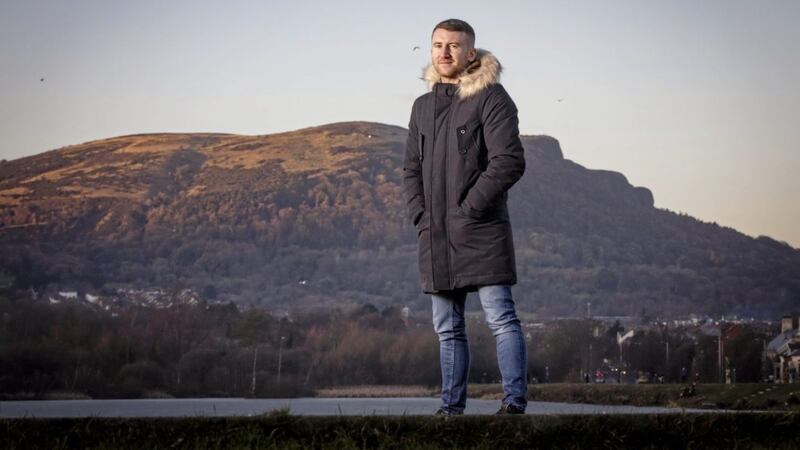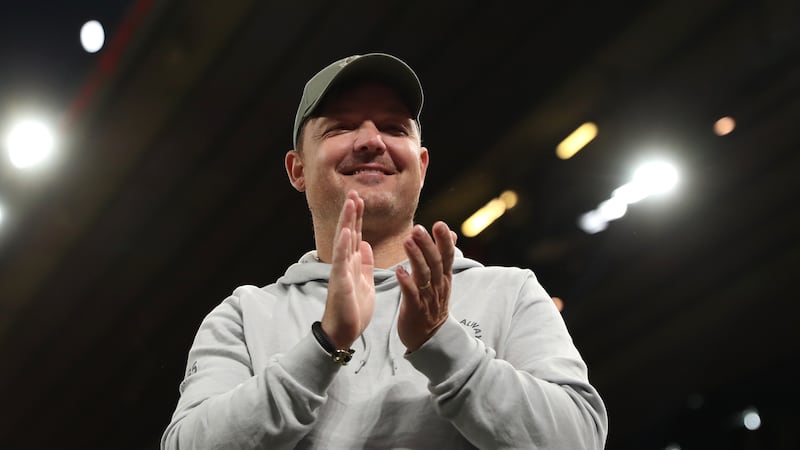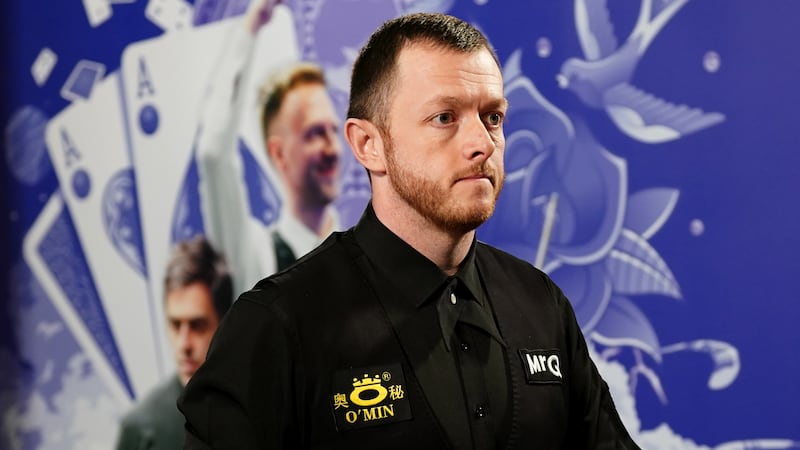FOR the first time since Athens 2004, the summer past saw an Olympic Games passed by without the sight of Paddy Barnes marching defiantly towards the ring. Instead a new crew, the likes of his former Holy Family club-mate Aidan Walsh and Ireland’s new golden girl Kellie Harrington grabbed the baton and led the charge in Tokyo.
It is five years since Barnes last donned an amateur vest in Rio, and fast-approaching two since his last hurrah as a pro against Jay Harris at the Ulster Hall.
When you dedicate your life to something for so long, leaving it behind can be tough. Boxing is full of such stories - but not Barnes.
Setting the alarm and watching the early morning action unfold in Tokyo, there were no moments of longing, no misty-eyed reminiscences. Sentiment was never his strong suit, and that isn’t about to change now.
“I didn’t feel anything like that. I had never watched the Olympics in my life… I watched Amir Khan and Andy Lee in Athens – that was it. I never watched any of the other sports, nothing, but I enjoyed watching the boxing this time.
“At the start of my career I didn’t even really care about the Olympics, I cared more about the World Championships. I wanted to be the best in the world. Gerry Storey would always have been saying the Olympic dream is what everybody who walks through the door aims for, the highest level of the sport at amateur level.
“But I didn’t realise how important the Olympic Games was until I went.”
Looking back now, he is proud of the bronze medals brought home from Beijing 2008 and London 2012, with both taking pride of place in the family kitchen.
But not for one second does he regret claiming bronze medals were “for losers” after the disappointment of defeat to home favourite Zou Shiming in Beijing. Perspective, though, has altered his take on those comments.
“At the time I said what I meant.
“At the end of the day a bronze is for losers – I didn’t go there to win bronze, I went there to win gold and if that doesn’t happen I’m going to be disappointed. I wasn’t telling a lie, I don’t cringe about it because I always set myself the target of finishing first.
“That doesn’t mean winning a bronze isn’t a massive achievement, because it is – it shows you where your level is. You’re not good enough to win gold. Even getting to an Olympic Games is hard enough and to win any kind of medal should be celebrated.
“You probably only think that way when you’re finished. You sort of have to because otherwise you shouldn’t be in sport. If you don’t want to be the best, what’s the point in training and competing at the top level?
“But when you’re at an Olympic Games, it’s a surreal feeling being among the best athletes in the world, and the best boxers, even if I wasn’t able to enjoy it all that much because I was always making weight…”
Now that side of the game he definitely doesn’t miss.
And, years down the line, Barnes has been left with more questions than answers about the toll years of cutting weight took on his body.
From his early teens Barnes was boiling himself down to the light-flyweight limit, and the “lack of education” around that process still irks him today.
“I put on three stone in the first two months after I retired, eating and drinking shit, because your body’s not used to you eating what you want, when you want. And then I lost a stone in 10 days there recently because I was eating properly.
“But it annoys me because no-one educated me on making weight. Obviously you got some advice on the elite system, but there was nothing tailored. Everyone was the same, from flyweight to heavyweight – it was ridiculous. Maybe that’s different now.
“It was only when I turned pro that the nutritional side of things really came onboard, although I am my own worst enemy because I would’ve taken shortcuts. I didn’t take the advice onboard the way I should have.
“I was 48 kilos for about six years, through my youth and junior career and my early senior career, and because I starved my system of proper nutrients, I’m low on calcium. I have a thing called osteopenia, so I’m borderline osteoporosis.
“I’m the smallest in my family – all my brothers are bigger than me. I don’t know how I would have developed if I hadn’t been a boxer; I could’ve been six foot six for all I know. My oldest brother’s six foot three, my other brother’s five foot eight… it really annoys me when I think about it.
“The only plus point is I can wear kids’ shoes – my feet are five and a half. I usually wear a six like.”
These days he is a club development officer with the Irish Athletic Boxing Association (IABA) – indeed, having interviewed for that post three weeks before the Harris fight in October 2019, his days in the ring were already numbered before he ducked his head beneath the rope one last time.
And the transition to life after boxing has been as seamless as he could have hoped for.
“Coming into my last fight, I knew that was the last camp I’d be doing,” says the 34-year-old.
“A lot of people don’t realise that professional boxing is a different sport altogether. For me it was all about the Olympics – I never cared about going pro. My goal for most of my career was the Olympics.
“I only went pro because I’d been to three Olympics and I got offered a good contract. But even in the camp before my last fight, I was slowing down in sparring. I was still fit, but the reactions weren’t what they had been.
“Thankfully I was offered this job and everything worked out okay. It’s a bit of a shock at the start but I’ve adapted pretty quickly, so it’s all good.”








